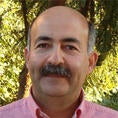PHYS 243: Foundations of Applied Machine Learning
Machine learning (ML) has emerged as a very powerful tool in Data Science. With ML techniques, computational systems can adaptively improve their performances using experimental data to train. This allows construction of algorithms that can learn from and make predictions based on data. Machine learning is a demanding discipline and is presently used to extract information from data in a variety of fields. This course is designed to prepare students to work in the Data Science disciplines using ML techniques, introduce existing ML techniques and algorithms. The course will provide practical experience and case studies based on real data. It covers examples from different disciplines- physics, astronomy, biology, neuroscience, finance. The course also provides an introduction to deep learning and its applications. By the successful completion of this course students would be able to define solutions for problems in a variety of disciplines using ML or deep learning techniques.
-
About the Instructor
Bahram Mobasher is Professor of Physics and Observational Astronomy at the University of California, Riverside (UCR). His main research is in formation and evolution of galaxies over the age of the Universe using large galaxy surveys. For his research Prof. Mobasher uses data from the ground-based and space telescopes- both imaging and spectroscopy. He is the Principal Investigator of a grant from NASA-MIRO program- Fellowship and Internship for Extremely Large Data Sets (FIELDS)- to train students in data science. He is leading collaborations in Data Science with NASA’s Jet Propulsion Laboratory (JPL). Prof. Mobasher is the co-founder of the multi-disciplinary Data Science Center at UCR. Prof. Mobasher has a BS in Physics. He obtained his MS and PhD in Observational Cosmology from Durham University, UK. He has an MS in optoelectronics and graduate diploma in Microwave engineering from the University of London. He was a research fellow in Astrophysics at the Imperial College, London. For seven years he was a staff scientist at the European Space Agency and an associate astronomer at the Space Telescope Science Institute, Baltimore, working on the calibration of instruments on the Hubble Space Telescope as well as doing research on the Hubble data.
